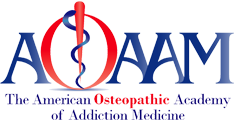America is confronted with surging overdose deaths in historically and continually marginalized communities. How will we respond?
December 21, 2021, East Providence, RI --Recent data analysisi bears truth to previously anecdotal reports of surging overdose deaths. This research is also exposing how ongoing structural racism is resulting in disproportionately high rates of overdose deaths within historically and continually marginalized communities. The Covid-19 pandemic is exacerbating this reality.
The research (Friedman & Hansen, 2021): Black overdose mortality overtook that of White overdose mortality in 2020 for the first time since 1999. Rates were 16.3% higher for Black individuals than White individuals in the same period. American Indian and Alaska Native individuals experienced the highest rate of overdose mortality in 2020. Rates for this populations were 30.8% higher than the rate for White individuals. Why? Health disparities resulting from structural racism spur increased drug overdose mortality within Black and Native communities.ii
STATEMENTS FROM OPIOID RESPONSE NETWORK WORKGROUP CHAIRS
Addressing opioid and stimulant use disorders within Black and Native Communities can't be achieved with a one size fits all approach. To this end, the Opioid Response Network, funded by the Substance Abuse and Mental Health Services Administration (SAMHSA), relies on its expansive, diverse array of consultants and workgroups.
"There has always been a severe gap in efforts to reach Black communities to address substance use disorders. This is alarming in the face of evidence that rates of overdose deaths in these communities outpace other populations. However, just reaching Black communities is not sufficient in-and-of-itself. Engagement must be tailored to meet individual and community identified needs. Working together we can identify and address health disparities and change the direction of these frustrating statistics."
Opioid Response Network Black Communities Workgroup Co-Chairs: Tracie Gardner, Senior Vice President of Policy Advocacy, Legal Action Center, and Myra Mathis, MD Senior Instructor of Psychiatry, Addiction Psychiatrist, Department of Psychiatry, University of Rochester
"For over 500 years, Native communities have been faced with relocation, forced assimilation, and attempts at genocide resulting in generations of historical trauma. This set the stage for the current opioid and stimulant epidemics and the increasing rate of mortality from overdose in Native communities that new research has exposed. Recognizing that conventional efforts to address this have been compromised from issues including disparities in healthcare access, it is clear new strategies are needed that center solutions within Native communities and provide consultation and resources to support these efforts. Through culturally informed education and training delivered in partnership with diverse Native communities, we can make a difference."
Opioid Response Network Indigenous Communities Workgroup Co-Chairs: Holly Echo-Hawk, MSc (Pawnee), and Aimee Campbell, PhD, Associate Professor of Clinical Psychiatric Social Work, Columbia University Irving Medical Center
"LGBTQ+ people face intersecting racism, discrimination, and stigma that can lead to elevated rates of substance use and mortality from overdose. LGBTQ+ people also often face health disparities as a result of structural racism, which is a key factor in increasing mortality rates in Black and Native communities. Culturally informed education and training, which the Sexuality and Gender Diversity Workgroup supports, is key to addressing increasing overdose mortality rates and for all people with substance use disorders."
Opioid Response Network Sexuality and Gender Diversity Workgroup Co-Chairs: Jeremy Kidd, MD, MPH, Assistant Professor of Clinical Psychiatry, Columbia University Irving Medical Center & New York State Psychiatric Institute, and Margaret Paschen-Wolff, DrPH, MSW Assistant Professor of Clinical Psychiatric Social Work, Columbia University Irving Medical Center & New York State Psychiatric Institute
To supplement efforts taking place across the country and U.S. territories to address opioid and stimulant use disorders and the overdose crisis, the Opioid Response Network's coalition of national organizations and individuals is providing no cost education and training. To ensure cultural responsivity and acknowledging and actively working to dismantle the structures which uphold health disparities, Opioid Response Network's workgroups advise on all activities facing historically and continually marginalized communities. Visit OpioidResponseNetwork.org for more information and to submit a request for training and education to enhance your efforts and meet your needs. Email orn@aaap.org with questions.
About the Opioid Response Network
The Opioid Response Network (ORN) was established through Substance Abuse and Mental Health Services Administration funding awarded to the American Academy of Addiction Psychiatry working collaboratively with the Addiction Technology Transfer Center Network, at the University of Missouri - Kansas City, Columbia University Division on Substance Use Disorders and 40 national organizations. ORN provides education and training in the prevention, treatment and recovery of opioid and stimulant use disorders at the local level and at no cost.
For more information, contact:
Nicholas Canning
Sr. Project Manager
Opioid Response Network
nic@aaap.org | 401-270-1173
